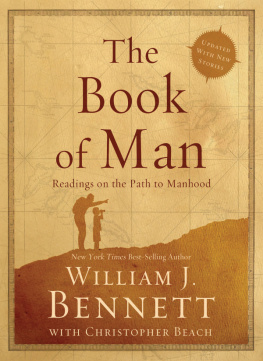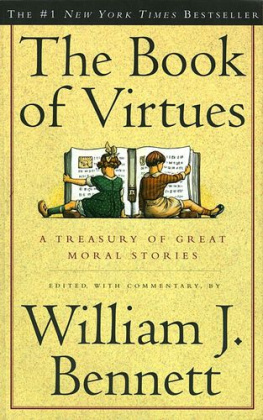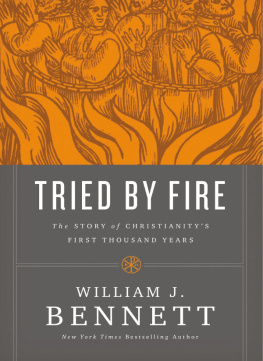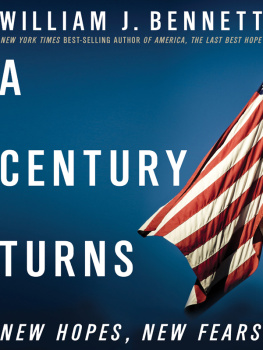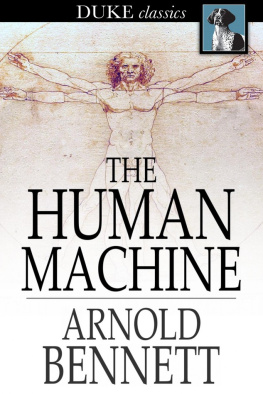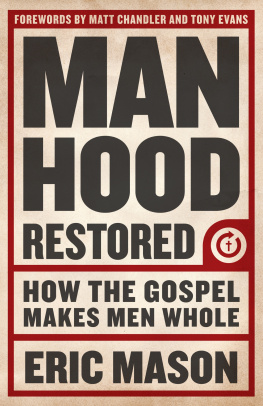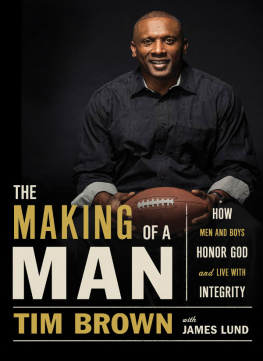
2011, 2013 by William J. Bennett
All rights reserved. No portion of this book may be reproduced, stored in a retrieval system, or transmitted in any form or by any meanselectronic, mechanical, photocopy, recording, scanning, or otherexcept for brief quotations in critical reviews or articles, without the prior written permission of the publisher.
Published in Nashville, Tennessee, by Nelson Books. Nelson Books and Thomas Nelson are registered trademarks of Thomas Nelson, Inc.
Thomas Nelson, Inc., titles may be purchased in bulk for educational, business, fund-raising, or sales promotional use. For information, please e-mail SpecialMarkets@ThomasNelson.com.
Unless otherwise noted, Scripture quotations are taken from HOLY BIBLE: NEW INTERNATIONAL VERSION. 1973, 1978, 1984 by International Bible Society. Used by permission of Zondervan Publishing House. All rights reserved.
Scripture quotations marked NKJV are from THE NEW KING JAMES VERSION. 1982 by Thomas Nelson, Inc. Used by permission. All rights reserved.
ISBN 978-1-59555-539-7 (Paperback)
The Library of Congress has catalogued the hardcover edition as follows:
Bennett, William J. (William John), 1943
The book of man / William J. Bennett.
p. cm.
ISBN 978-1-59555-271-6
1. MenConduct of life. 2. CharacterCase studies. I. Title.
BJ1601.B46 2011
808.8'035211dc23
2011026714
Printed in the United States of America
13 14 15 16 17 RRD 7 6 5 4 3 2 1

To our sons, John and Joseph, who are becoming the kind of men we hoped, prayed, and worked for. Know that others will say of each of you, following Homer, that the son is far better than the father, and he makes glad the heart of his mother.
Contents
Introduction
Agnus Dei
Funeral Meditation

T he purpose of this book is to explore and explain what it means to be a man. In these pages you will find a variety of sources that offer a coherent, defensible, and appealing notion of manhood. The selections range from ancient to modern, and in sum they carry timeless instruction. Taken together, they present an ideal of manhood both suitable and practical for today. In a variety of lifes contexts, these readings define what a man should be, how he should live, and the things to which he should aspire.
For boys to become men they need to be guided through advice, habit, instruction, example, and correction. It is true in all ages. Someone once characterized the two essential questions Plato posed as: Who teaches the children, and what do we teach them? Each generation of men and women has an obligation to teach the younger males (and females, of course) coming behind them. When they fail in that obligation, trouble surely follows.
There is trouble with men today. For example, after studying todays workforce data, author and commentator David Brooks observed that in 1954, about 96 percent of American men between the ages of 25 and 54 worked. Today that number is around 80 percent. One-fifth of all men in their prime working ages are not getting up and going to work.
Men, American men in particular, are increasingly dependent on the government dole rather than the fruits of their own labor. As Brooks pointed out, the result is worrisome: There are probably more idle men now than at any time since the Great Depression, and this time the problem is mostly structural, not cyclical. These men will find it hard to attract spouses. Many will pick up habits that have a corrosive cultural influence on those around them.
In his article, Broken Families, Broken Economy, Mitch Pearlstein observes a similar phenomenon. Under normal circumstances, boys grow up and marry the women who become the mothers of their children. If, however, they reach adulthood unable to hold a job, stay sober, or keep out of jail, they quickly find that desirable women have little interest in hitching themselves to them, Pearlstein writes. In communities where marriage is vanishing, it cannot be revived unless millions of boys (and girls) get their lives in decent order. Aimless or felonious men are not the only reason for the decline of marriage, but they are a sizable one. Considering that, in 1970, 80 percent of twenty-five- to twenty-nine-year-old men were married and in 2007 only 40 percent were, Pearlsteins and Brookss assessments are tragically accurate.
Other commentators, like National Review editor Rich Lowry, have written recently about the working class in America. Lowry noted that the working class is getting cut off from the richest sources of social capital: marriage, two-parent families, and church-going. More people are falling into a lower class characterized by men who cant make a minimal living and single women with children.
But the decline in foundational virtueswork, marriage, and religionaffects more than the lower class. It appears to affect the upper reaches of the wealthiest also. For instance, we once believed that wealth and success for men were connected to and were a product of diligence and virtue. We are not so sure anymore.
Walter Russell Mead, the accomplished cultural essayist, put it this way about some of Americas elite men: What a surprise! We raised a generation of bright kids without a foundation in religion, and theyve grown up and gone to Wall Street. We never told them that the virtuous life was both necessary and hard, that character was something that had to be built step by step from youth, that moral weakness was both contemptible and natural: and we are shocked, shocked! when, placed in proximity to large sums of loose cash, they grab all they can. In short, from the top to the bottom of American society we have a problem with a good number of our men.
One such symptom is the collapse of what is known as the code of men, or the code of a gentleman. There was once a common understanding in our society among men that there are standards of action and behavior to which men should hold themselves. Men, the code dictates, among other things, keep their word, whether in writing or not, men do not take advantage of women, men support their children, and men watch their language, especially around women and children. The code of men is fading.
In his essay, The Crisis of Manliness, Waller Newell laments, As a culture we have never been more conflicted about what we mean by manhood. Many of our men today suffer from Fight Club syndrome. Newell explains, Under-fathered young men, many from broken homes, [are] prone to identify their maleness with aggression because they have no better model to go by... [I]f young men are cut off from the positive tradition of manly pride their manliness will reemerge in crude and retrograde forms.
So, one might argue that in our time there is especially a need for guidance, and the important role of men for boys is particularly acute. Of course there are successes, and every day great boys are raised to be great men. But there are too many other cases as well. Confusion regarding manhood abounds, including confusion about a proper understanding of virility. Fathers are missing from boys lives in devastatingly high numbers. Children are exposed to a dizzying array of cultural signals about what it means to be a man, signals both good and bad. Our society is moving forward so rapidly that it has forgotten much good from the past. And women are beginning to take the place of men in many ways. Women have now surpassed men in several categories that reflect economic and cultural standing. In American colleges, for every two men who graduate with a bachelor of arts degree, three women receive a BA. Women now dominate thirteen of the fifteen job categories expected to grow the most in the coming decade. This has led some to ask: Do we even need men?
Next page
